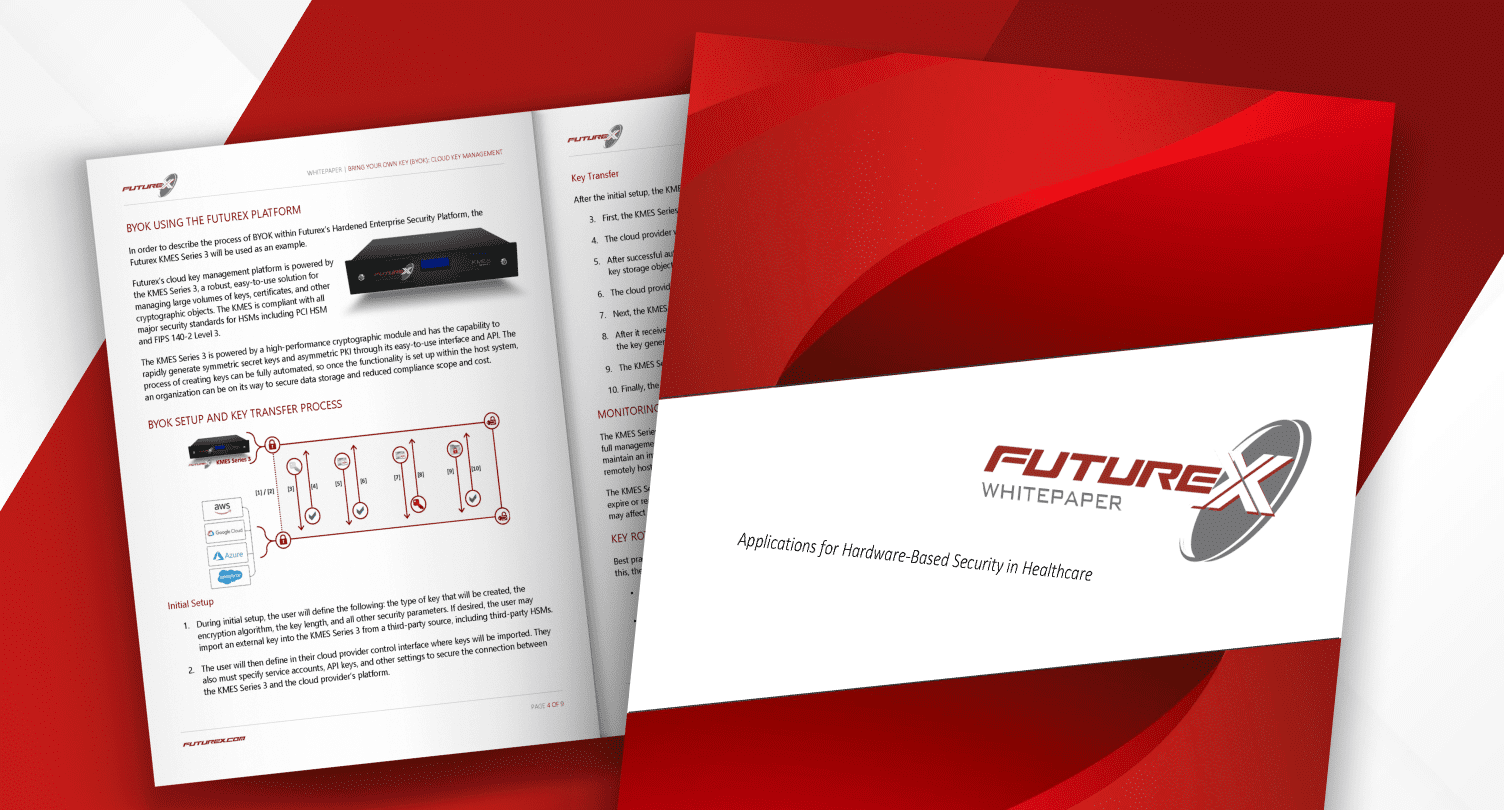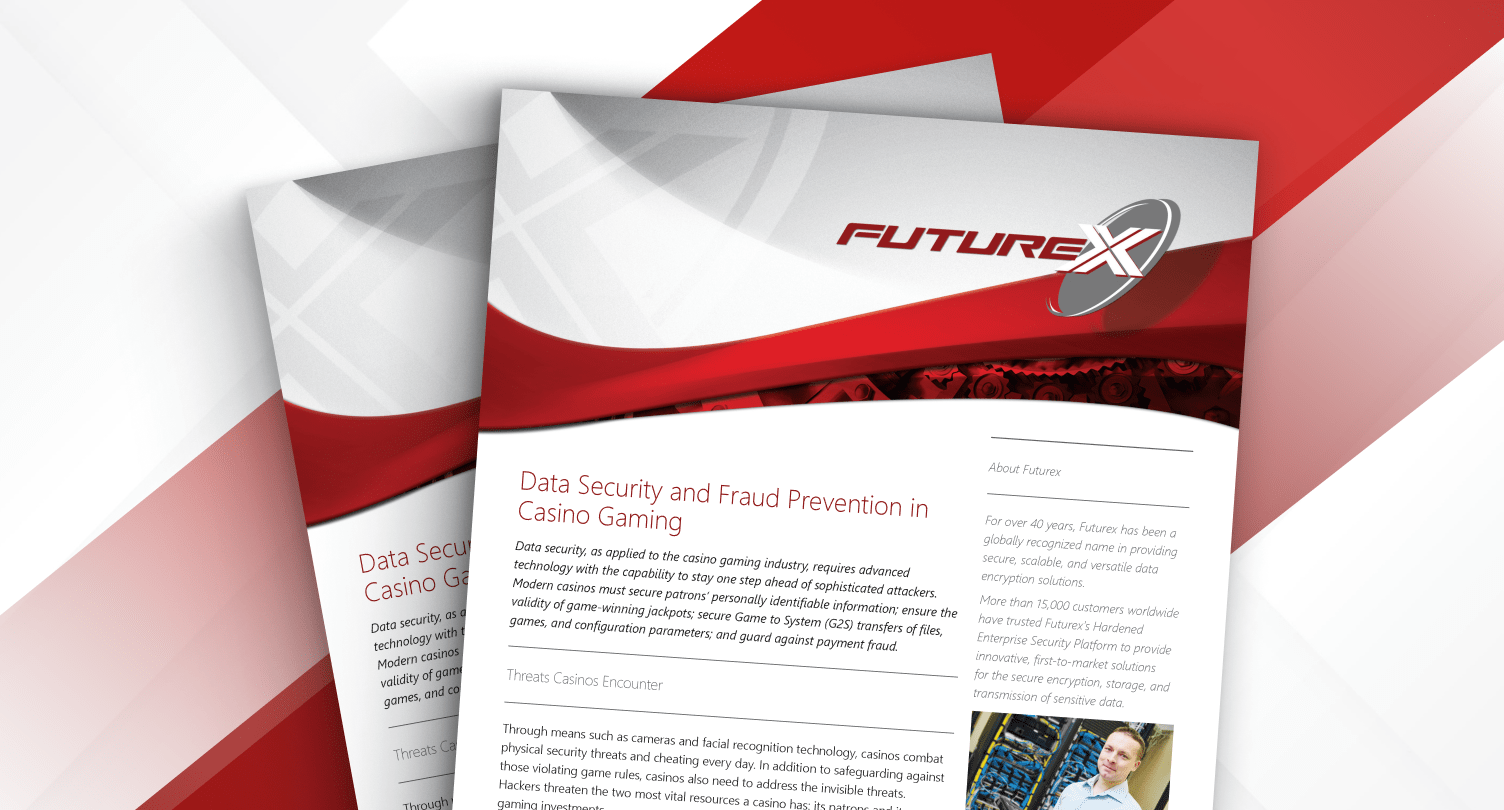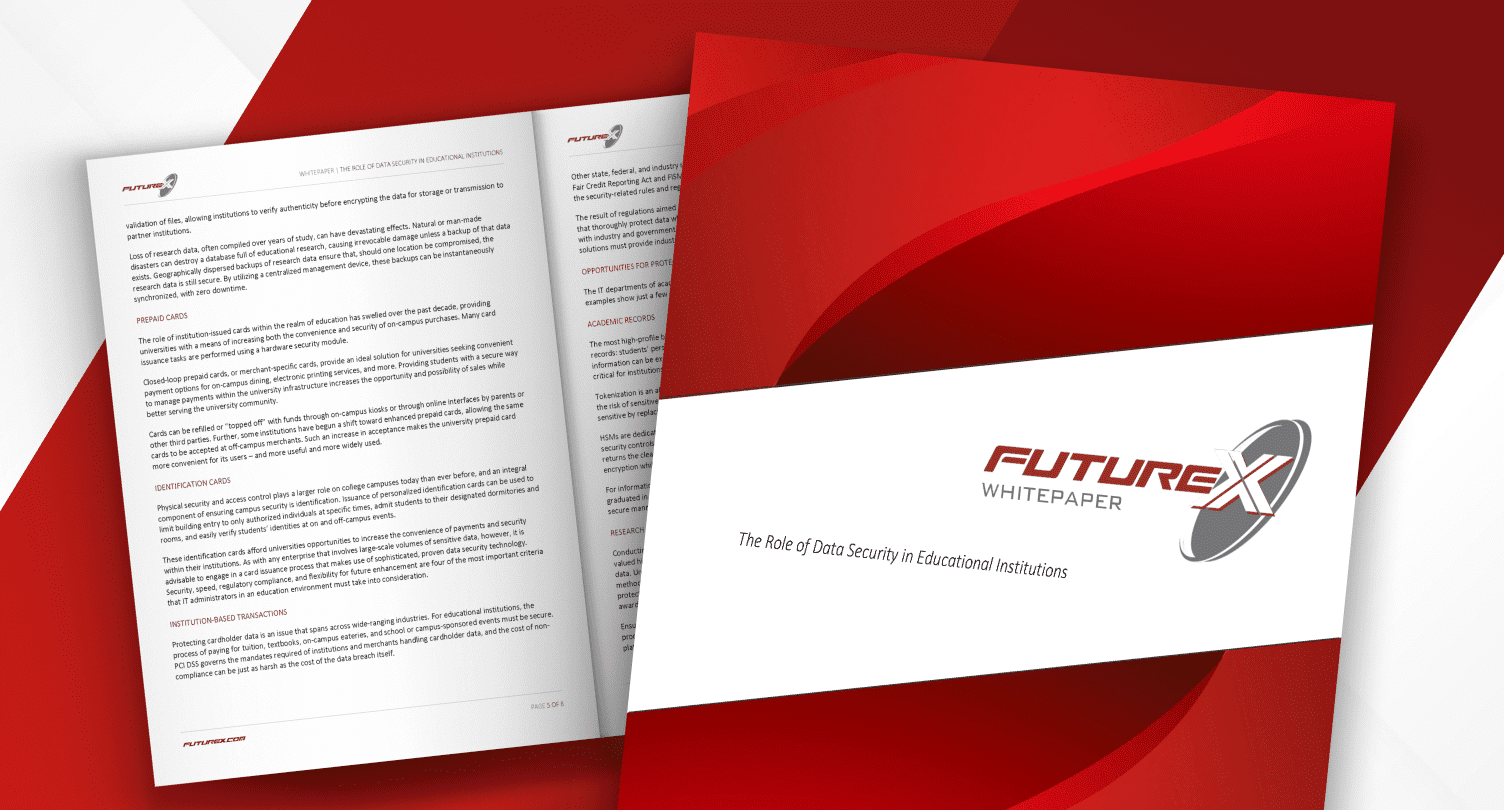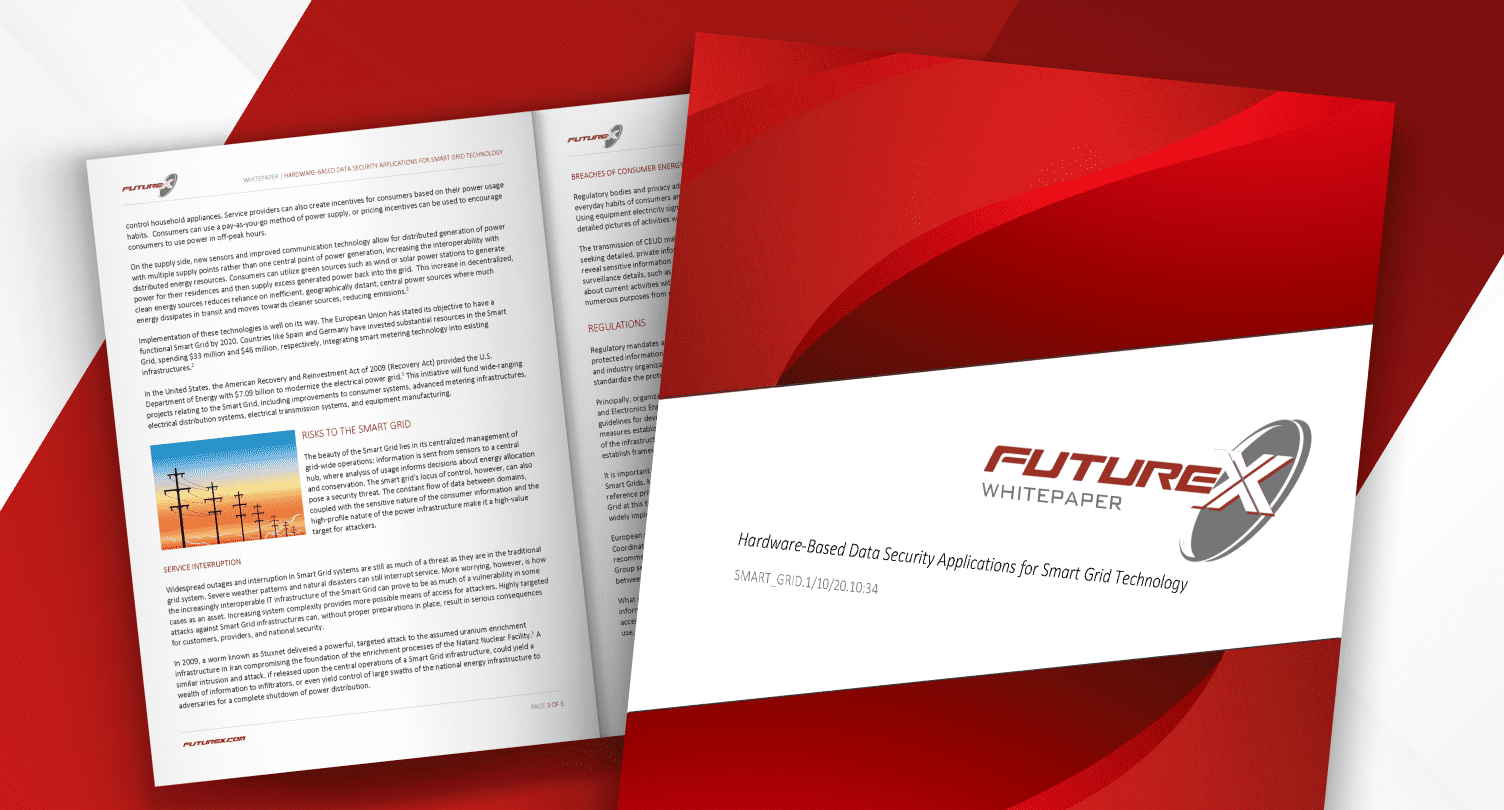Internet of Things (IoT)
- Public key infrastructure (PKI)
- Offline root certificate authority (CA)
- Issuing CA
- Code signing
- IoT signing
- Digital object signing with unlimited scalability
Cryptographic solutions for any industry, anywhere

Futurex cryptographic encryption solutions integrate into any industry, providing interoperable protection for sensitive data, transactions, and communications.
We're committed to safeguarding digital assets across your enterprise and around the world with the latest encryption technology, whether you are in finance, healthcare, manufacturing, government, and other fields.
“We have a longstanding relationship with Futurex built on collaboration and innovation. As a technology partner, our development teams collaborate to provide one of the most simplified integrations.”
- Ingenico
Internet of Things (IoT)
Financial Services
Retail
Healthcare
Government and Defense
Telecom and 5G
Educational Institutions
Utilities & Smart Grid
Casino and Gaming
Medical IoT
Automotive
Corporate





Futurex provides HSMs and key management servers that handle encryption, bring-your-own-key (BYOK). Futurex helps enterprise organizations deploy a modern cloud data security environment that complies with the latest standards and regulations.








